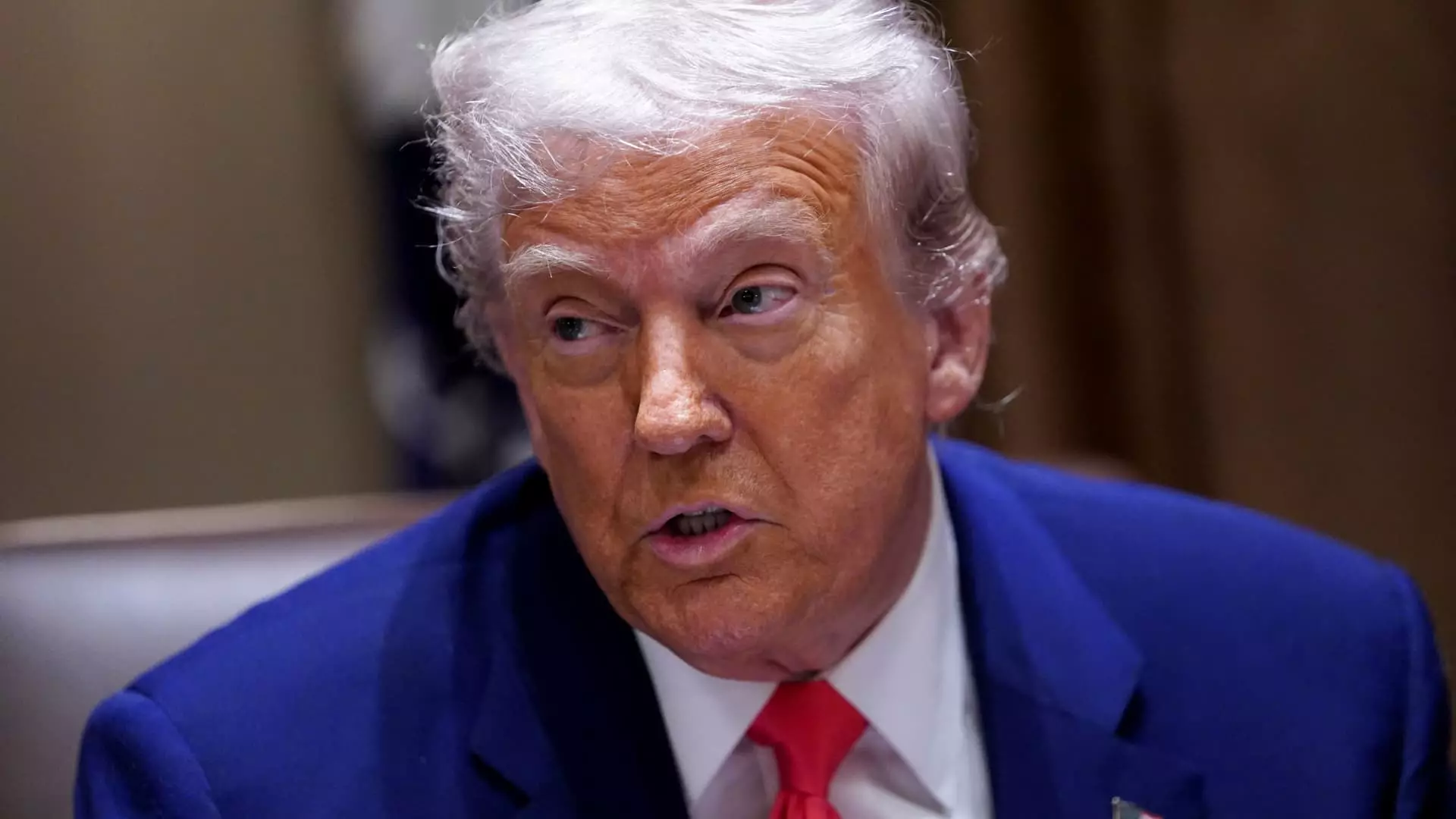In the shadow of President Trump’s tumultuous trade policies, one sector shines like a beacon of resilience: the technology industry. Recent guidance from U.S. Customs and Border Protection indicates a notable exemption for crucial tech products—smartphones, semiconductors, and multiple electronic devices—from the crippling reciprocal tariffs that threatened to engulf companies like Apple. As I dissect this unfolding narrative, it’s essential to highlight not just the strategic maneuvers at play, but the overarching implications for our economy in these unpredictable times.
Trump’s imposition of a staggering 145% tariff on Chinese goods initially sent shockwaves across Wall Street. Investors grappled with the specter of skyrocketing prices and dwindling margins for products reliant on Chinese manufacturing. This grim outlook could have made an iPhone’s retail price soar to an almost unbelievable $3,500. Such projections dramatize the stark reality faced by tech giants—companies that have built their empires on the efficiencies of global supply chains. However, the recent exemptions serve to alleviate some of these fears and provide a temporary reprieve for companies at the forefront of tech innovation.
The Response from Wall Street and Beyond
The reactions from Wall Street have been swift and pronounced. Dan Ives, a prominent figure in technology research at Wedbush Securities, characterizes the exemptions as transformative. The exclusion of high-impact products from the tariffs has allowed the tech sector to breathe a sigh of relief, albeit temporarily. “This is the dream scenario for tech investors,” he asserts, presenting a stark contrast to the earlier fears that clouded the financial landscape.
However, while the current situation may appear advantageous, it’s vital to remain cautious. This relief is not a panacea; it is a bandage on a deep wound created by an erratic approach to international trade. The initial tariffs had already inflicted significant damage, with Apple reportedly losing over $640 billion in market valuation since the announcement. The volatility of the market, evidenced by a drastic 5% drop in the S&P 500, suggests that we are teetering at the brink of greater economic uncertainty.
It’s clear that the ramifications of these tariffs extend beyond individual companies and seep into the broader economic fabric. The bond market’s tumultuous behavior—the soaring Treasury yield, in particular—hints at an impending recession if such erratic policies continue unchecked. In navigating these challenges, the wisdom of centrist liberals becomes crucial; we must advocate for a rational approach to trade that considers both national interests and global interdependence.
Intervention and Impact on Economic Policy
The decision to exclude tech products from punitive tariffs could be interpreted as a recognition by the White House of the power held by large tech CEOs. It stands as an acknowledgement that the health of the tech sector is integral not only to the economy but also to American innovation as a whole. The implications of this introspection cannot be understated. The tech world is not merely a collection of corporations; it is a driving force of modern progress, shaping job markets, catalyzing economic growth, and pioneering groundbreaking technologies.
Yet, reflecting on the efficacy of this temporary fix is pertinent. Exemptions might keep companies like Apple afloat in the immediate term, but uncertainty looms large for the future. With some components still on the chopping block for additional duties, the tech industry remains vulnerable to the whims of trade policies swayed by political agendas.
The existential threat posed by unchecked tariffs should galvanize a national conversation about our trade policies—one that emphasizes cooperation over confrontation, and stability over volatility. We must strive to mend the rifts created by isolationist policies and seek pathways that foster collaboration between nations.
The Path Forward
Rather than celebrating a short-term victory, we must critically evaluate the sustainability of our trade practices. Technology cannot be treated as a bargaining chip or a pawn in a geopolitical chess game. Instead, it should be regarded as a vital sector deserving of strategic freedom and respect in the global economic arena. A balanced policy that recognizes the input of industry leaders while prioritizing consumer interests is imperative.
In this climate of uncertainty, as the tech industry seeks to navigate the intricacies of U.S.-China relations, we must advocate for policies grounded in foresight and grounded attitudes. The recent exemptions may have provided a temporary lif raft, but a reimagining of our trade policy is essential for long-term economic health. Exploring solutions that prioritize collaboration over conflict is the antidote required to ensure that our technological aspirations are not hampered but rather paved towards a flourishing future.


Leave a Reply